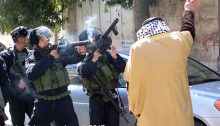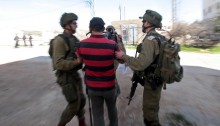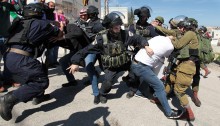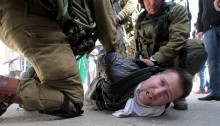Commemoration of the Hebron 1994 massacre
Hebronites and allies march on Friday to mark the 25th anniversary of the Goldstein massacre. In the early hours of February 25, 1994, Baruch Goldstein, an Israeli-American settler, killed 29 Palestinians who were worshipping in the Ibrahimi Mosque in Hebron, wounding 125 others. In the following years, Israel has intensified its presence in the city,…





